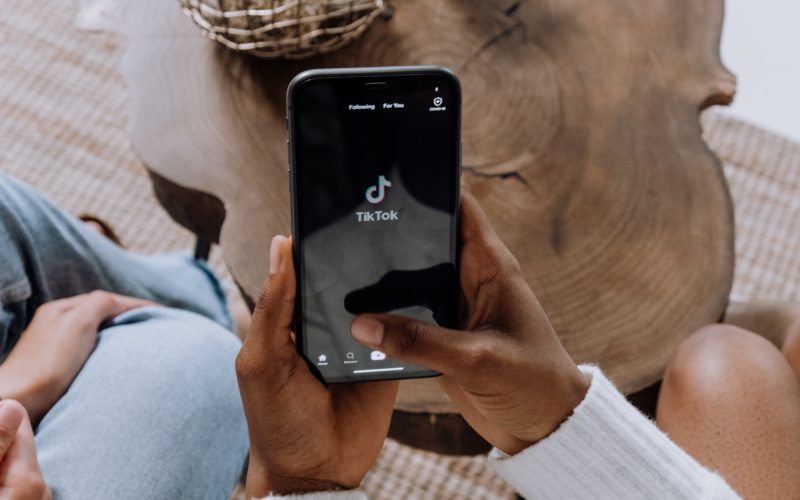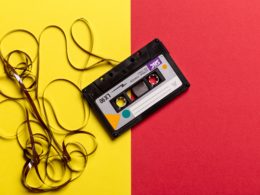Over eight million households worldwide watched the Netflix series “Bridgerton” within four months of its release on Christmas day 2020.1[1]Alexandra Peers, Netflix sues creators of unofficial Bridgerton musical, CNN BUSINESS (Aug. 18, 2022), https://www.cnn.com/2022/08/18/media/bridgerton-legal-battle-netflix-tiktok/index.html. The iconic imagery, romantic plotline, and classic language created a hit show that has already been renewed for its third season.2[2] Netflix Worldwide Entertainment, LLC v. Abigail Barlow and Emily Bear (D.C.) (1:22-cv-02247) at 3. Millions of fans loved the show, and many took to TikTok to discuss the plot, their favorite characters, and jaw dropping moments. In fact, music duo Abigail Barlow and Emily Bear (“Barlow and Bear”) took it one step further and showed their admiration for the show by creating a musical which they subsequently released on TikTok starting in January 2021.3[3] Abigail Barlow (@abigailbarlowww), TIKTOK (Jan. 10, 2021), https://www.tiktok.com/t/ZTRumdkhh/.
The musical was comprised of multiple TikToks originally released on Barlow’s personal account.4[4]Id. Each TikTok featured a new song composed and written by Barlow and Bear and based on the Netflix series.5[5]Netflix Worldwide Entertainment, LLC v. Abigail Barlow and Emily Bear (D.C.) (1:22-cv-02247) at 9-13. They saw massive success with many of the videos getting millions of views.6[6]Abigail Barlow (@abigailbarlowww), TIKTOK (Jan. 14, 2021), https://www.tiktok.com/t/ZTRumUJBy/. The duo eventually recorded and released an album entitled Unofficial Bridgerton Musical, comprising of 15 songs all performed by Barlow and Bear.7[7]Deanna Schwartz, The Netflix v. ‘Unofficial Bridgerton Musical’ lawsuit, explained, NPR (Aug. 4, 2022), https://www.npr.org/2022/08/04/1115212455/netflix-bridgerton-musical-lawsuit. Then, in November 2021, the album was nominated for and later won the Grammy for Best Musical Theater Album.8[8]Peers, supra note 1.
Following the duo’s success Netflix filed a complaint against Barlow and Bear in the District Court in Washington, D.C. alleging that Barlow and Bear’s Unofficial Bridgerton Musical is an unauthorized derivative work that infringed on their Bridgerton copyright.9[9]Netflix Worldwide Entertainment, LLC v. Abigail Barlow and Emily Bear (D.C.) (1:22-cv-02247). In their complaint, Netflix repeatedly advised Barlow and Bear that live performances of a Bridgerton-based album were strictly prohibited.10[10]Id. at 14. Additionally, Barlow and Bear sought a license from Netflix to perform the album for a charity performance, which Netflix rejected.11[11]Id. Despite this rejection, Netflix admitted that they did not “stand in the way” of the performance either.12[12]Id. at 15. However, Netflix changed their stance when Barlow and Bear staged a for-profit concert at the Kennedy Center in Washington, D.C, and this suit followed.13[13]Norris McLaughlin, Netflix Sues Bridgerton Musical Creators for Copyright and Trademark Infringement, NATIONAL LAW REVIEW (Aug. 26, 2022), https://www.natlawreview.com/article/netflix-sues-bridgerton-musical-creators-copyright-and-trademark-infringement. Although the lawsuit has been settled, it raises important issues regarding what constitutes non-infringing fair use of a copyrighted work.
Discussion on Fair Use
Under the fair use doctrine, there are limited circumstances in which a commercial use of a work can avoid being held as copyright infringement, which are generally limited to works of criticism, commentary, and parody.14[14]Schwartz, supra note 7. In this case, Barlow and Bear’s work could be considered fan fiction and thus categorized as a derivative work of the original Bridgerton series.15[15]Id. A derivative work is a work based on or derived from a pre-existing original creative work.16[16]17 U.S.C.A. § 103. The right to create a derivative work, however, is the exclusive right of the original copyright owner.17[17]McLaughlin, supra note 13. As such, Netflix argued that Barlow and Bear created an unauthorized derivative work in the Unofficial Bridgerton Musical by intentionally basing several elements of the musical on the creative aspects of the Bridgerton show, thus infringing on its copyright in the Bridgerton series.18[18]Netflix Worldwide Entertainment, LLC v. Abigail Barlow and Emily Bear (D.C.) (1:22-cv-02247) at 9.
Lawsuit and the Merits
In their complaint Netflix alleged that Barlow and Bear committed copyright infringement by stretching the boundaries of fan fiction and fair use.19[19]Schwartz, supra note 7. Specifically, Netflix claimed that Barlow and Bear copied many original aspects of the show, including lines of dialogue, characters, and key plot points.20[20]Id. Further, the for-profit concert that Barlow and Bear were arranging was claimed to be in direct competition with Netflix’s live event, “The Queen’s Ball: A Bridgerton Experience,” which featured elaborate sets, music, dances, and acrobats mimicking scenes from the show.21[21]Netflix Worldwide Entertainment, LLC v. Abigail Barlow and Emily Bear (D.C.) (1:22-cv-02247) at 18.
The suit, however, was settled out of court in September 2022 before Barlow and Bear ever submitted a response to the complaint.22[22]Gene Maddus, Netflix Settles Copyright Lawsuit Over ‘Unofficial Bridgerton Musical’, VARIETY (Sep. 23, 2022), https://variety.com/2022/music/news/netflix-bridgerton-musical-lawsuit-dropped-barlow-bear-1235382454/. The duo subsequently cancelled a performance at the Royal Albert Hall of the Unofficial Bridgerton Musical in September 2022.23[23]Dawn Chmielewski, Netflix dismisses lawsuit against the creators of ‘The Unofficial Bridgerton Musical’, VARIETY (Sep. 26, 2022), https://www.reuters.com/lifestyle/netflix-dismisses-lawsuit-against-creators-the-unofficial-bridgerton-musical-2022-09-24/. Netflix dismissed the suit with prejudice, but the exact terms of the settlement are unknown.24[24]Maddus, supra note 22.
This suit brings up interesting issues as it relates to a popular and growing form of creativity. Fan fictions of this kind are often protected under the copyright doctrine of fair use, but there are limits to this defense to copyright infringement.25[25]17 U.S.C.A. § 107. The fair use doctrine balances four factors in determining whether a specific use of a copyright work constitutes fair use: (1) the purpose and character of the use, (2) the nature of the copyrighted work, (3) the amount and substantiality of the portion used, and (4) effect of the use upon the potential market for or value of the copyrighted work.26[26]Id.
Barlow and Bear’s fan fiction could have gone beyond fair use and into infringing activity in several ways. First, the purpose and character of Barlow and Bear’s use was commercial when they decided to put the Kennedy Center show on for profit. Federal law sets out limitations to exclusive copyright rights.27[27]17 U.S.C.A. § 110. The Copyright Act states that there is not infringement if (1) there is no financial gain and (2) the copyright owner has not objected to the use.28[28]Id. The Supreme Court explored this further in Sony v. Universal City, explaining that a commercial use of a copyrighted work presumptively infringes on the copyright owner’s rights.29[29]Sony Corp. of Am. v. Universal City Studios, Inc., 464 U.S. 449 (1984). The court continued to explain that even a non-commercial use can amount to infringement if it will have a negative effect on use by the copyright owner in the market.30[30]Id. As stated before, Netflix made clear that any for-profit performances would not be allowed, and, if one occurred, they would take action.31[31]Netflix Worldwide Entertainment, LLC v. Abigail Barlow and Emily Bear (D.C.) (1:22-cv-02247) at 14. Further, Netflix alleged in their complaint that Barlow and Bear’s performance at the Kennedy Center directly competed with Netflix’s Bridgerton Experience.32[32]Id at 18. Thus, following the court’s opinion in Sony, Barlow and Bear’s actions were unlikely to constitute a fair use of Netflix’s Bridgerton series.
Barlow and Bear could also be found to have used a substantial amount of the original work, resulting in infringement on a copyright, with their integration of specific lines from the television show into their music.33[33]Schwartz, supra note 7. Here, the third balancing factor of the fair use analysis, the amount and substantiality of the portion used, would likely weigh in Netflix’s favor. In Disney Enterprises. v. VidAngel. the Central District Court of California held that an unauthorized derivative work infringes on a copyright if the heart of the original work remains intact.34[34]Disney Enterprises, Inc. v. VidAngel, Inc., 371 F. Supp. 3d 721 (C.D. Cal. 2019). In that case, VidAngel was taking Disney movies and ‘filtering out’ portions chosen by the consumer.35[35]Id. VidAngel claimed that since the consumer was taking an active role in changing the work, it constituted fair use.36[36]Id. The Court disagreed and found that if the heart of the work remains unchanged, that is, if the central themes and ideas are the same in the derivative work as the original work, the derivative work will not be protected under the fair use defense.37[37]Id. Similarly, Barlow and Bear closely relied on Netflix’s version to create the music in their TikToks. They went so far as to consistently ask viewers to comment what they wanted to see from the show in their musical.38[38]Abigail Barlow (@abigailbarlowww), TIKTOK (Jan. 24, 2021), https://www.tiktok.com/t/ZTRumDJea/. It could certainly be argued that Barlow and Bear kept the heart of the original Bridgerton work in their musical, as the storyline, characters, and themes were present in Unofficial Bridgerton Musical. Therefore, the Unofficial Bridgerton Musical would likely not be protected under fair use.
Netflix’s lawsuit may discourage other third-party derivative works based on their copyrighted content or subsequent works from Barlow and Bear. This suit could serve as an example to creators of where the line is between making musical fan fiction that is protected under the fair use doctrine and content that is considered to be an unauthorized derivative work. Rebecca Tushnet, a professor at Harvard Law School, stated that most fan fiction works don’t take that much from the existing work, so fan fiction writers can often avail themselves of the fair use defense.39[39]Schwartz, supra note 7. Even if a work does infringe on a copyright, the owner can always choose not to pursue legal action. If Netflix’s actions are any indication, however, it seems that copyright owners may be less willing to allow these musical fan fiction works to continue unabated and without any challenge.
1 Alexandra Peers, Netflix sues creators of unofficial Bridgerton musical, CNN Business (Aug. 18, 2022), https://www.cnn.com/2022/08/18/media/bridgerton-legal-battle-netflix-tiktok/index.html.
2 Netflix Worldwide Entertainment, LLC v. Abigail Barlow and Emily Bear (D.C.) (1:22-cv-02247) at 3.
3Abigail Barlow (@abigailbarlowww), TikTok (Jan. 10, 2021), https://www.tiktok.com/t/ZTRumdkhh/.
4 Id.
5 Netflix Worldwide Entertainment, LLC v. Abigail Barlow and Emily Bear (D.C.) (1:22-cv-02247) at 9-13.
6 Abigail Barlow (@abigailbarlowww), TikTok (Jan. 14, 2021), https://www.tiktok.com/t/ZTRumUJBy/.
7 Deanna Schwartz, The Netflix v. ‘Unofficial Bridgerton Musical’ lawsuit, explained, NPR (Aug. 4, 2022), https://www.npr.org/2022/08/04/1115212455/netflix-bridgerton-musical-lawsuit.
8 Peers, supra note 1.
9 Netflix Worldwide Entertainment, LLC v. Abigail Barlow and Emily Bear (D.C.) (1:22-cv-02247).
10 Id. at 14.
11 Id.
12 Id. at 15.
13 Norris McLaughlin, Netflix Sues Bridgerton Musical Creators for Copyright and Trademark Infringement, National Law Review (Aug. 26, 2022), https://www.natlawreview.com/article/netflix-sues-bridgerton-musical-creators-copyright-and-trademark-infringement.
14 Schwartz, supra note 7.
15 Id.
16 17 U.S.C.A. § 103.
17 McLaughlin, supra note 13.
18 Netflix Worldwide Entertainment, LLC v. Abigail Barlow and Emily Bear (D.C.) (1:22-cv-02247) at 9.
19Schwartz, supra note 7.
20 Id.
21 Netflix Worldwide Entertainment, LLC v. Abigail Barlow and Emily Bear (D.C.) (1:22-cv-02247) at 18.
22 Gene Maddus, Netflix Settles Copyright Lawsuit Over ‘Unofficial Bridgerton Musical’, Variety (Sep. 23, 2022), https://variety.com/2022/music/news/netflix-bridgerton-musical-lawsuit-dropped-barlow-bear-1235382454/.
23Dawn Chmielewski, Netflix dismisses lawsuit against the creators of ‘The Unofficial Bridgerton Musical’, Variety (Sep. 26, 2022), https://www.reuters.com/lifestyle/netflix-dismisses-lawsuit-against-creators-the-unofficial-bridgerton-musical-2022-09-24/.
24 Maddus, supra note 22.
25 17 U.S.C.A. § 107.
26 Id.
27 17 U.S.C.A. § 110.
28 Id.
29 Sony Corp. of Am. v. Universal City Studios, Inc., 464 U.S. 449 (1984).
30 Id.
31 Netflix Worldwide Entertainment, LLC v. Abigail Barlow and Emily Bear (D.C.) (1:22-cv-02247) at 14.
32 Id at 18.
33 Schwartz, supra note 7.
34 Disney Enterprises, Inc. v. VidAngel, Inc., 371 F. Supp. 3d 721 (C.D. Cal. 2019).
35 Id.
36 Id.
37 Id.
38 Abigail Barlow (@abigailbarlowww), TikTok (Jan. 24, 2021), https://www.tiktok.com/t/ZTRumDJea/.
39 Schwartz, supra note 7.
Written by: Angela Lauters
Angela is a 2023 J.D. Candidate at Brooklyn Law School




